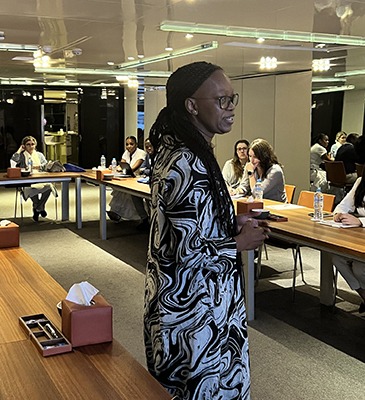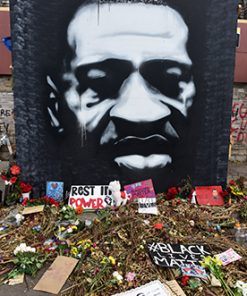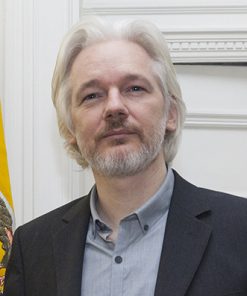Diversity, Equity, and Inclusion (DEI) are the tools to build that society, creating environments where people from all backgrounds can contribute, thrive, and lead.
The promise of meritocracy has never matched reality. In theory, hard work and talent should determine success. In practice, race, gender, class, and other social barriers often decide who gets the opportunity to succeed and who is left behind. From the workplace to the classroom, from boardrooms to city halls, systemic inequities persist—not because people are inherently unequal, but because institutions were built on exclusionary foundations. DEI initiatives aim to dismantle these barriers, not by lowering standards, but by ensuring that the starting line is not set farther back for some than for others.
Diversity enriches society. It brings different perspectives, experiences, and talents into decision-making processes, driving innovation and creativity. In business, diverse teams outperform homogeneous ones. A 2020 McKinsey report found that companies with greater gender and ethnic diversity were more likely to outperform competitors financially. In education, diverse classrooms lead to better critical thinking skills and greater cultural awareness. In civic life, diverse leadership ensures that policies reflect the needs of all communities.
Equity ensures that resources and opportunities are distributed according to need, recognizing that historical disadvantages cannot be overcome with one-size-fits-all solutions. It is not enough to open the door if some people arrive with the weight of discrimination, poverty, and exclusion on their backs. Equity means leveling the playing field—providing scholarships for first-generation students, fair hiring practices that recognize nontraditional career paths, and healthcare access that accounts for disparities in health outcomes among different populations.
Inclusion ensures that diversity and equity translate into real participation. It is not enough to have a seat at the table if one’s voice is ignored. Inclusive environments foster belonging, valuing contributions from people of all backgrounds, abilities, and perspectives. This requires more than lip service; it demands structural changes to policies, leadership practices, and organizational cultures. True inclusion means reconsidering how decisions are made, whose voices are prioritized, and how power is shared.
The critics of DEI argue that such initiatives undermine meritocracy, promote reverse discrimination, or enforce ideological conformity. These arguments ignore the reality that the current system already favors those with privilege. DEI does not discard merit; it ensures that merit is recognized across all demographics, rather than being confined to those who had the easiest path to achievement. Research consistently shows that well-implemented DEI initiatives benefit everyone, not just marginalized groups. Inclusive workplaces are more productive, inclusive schools perform better, and inclusive societies are more stable and resilient.
The economic case for DEI is clear. According to a 2019 Citigroup report, systemic racism cost the U.S. economy $16 trillion over the past 20 years in lost productivity, investment, and innovation. Closing racial and gender gaps would not only benefit individuals but would also expand the overall economy, creating more wealth and opportunity for everyone. Ignoring inequity is not just immoral; it is economically self-defeating.
But DEI is not just about economics; it is about human dignity. It is about ensuring that no one is excluded from opportunity because of circumstances beyond their control. It is about valuing the richness of human experience and understanding that societies thrive when everyone can contribute their best. The psychological benefits of DEI are profound—people who feel valued and included are more engaged, healthier, and more likely to contribute positively to their communities.
While DEI initiatives often focus on race, gender, and socioeconomic status, their scope extends further, addressing barriers faced by people with disabilities, LGBTQ+ individuals, religious minorities, and older workers. Inclusive practices benefit everyone by dismantling rigid systems that exclude people based on arbitrary factors rather than ability or potential. For example, accessible workplaces—whether through flexible schedules, assistive technology, or inclusive policies—support not only disabled employees but also parents, caregivers, and anyone facing life’s unpredictable demands.
Moreover, DEI strengthens resilience in organizations and communities. During the COVID-19 pandemic, companies with strong DEI frameworks were better equipped to adapt, showing greater employee retention and satisfaction. This resilience extends to broader societal challenges: communities that embrace diversity are more cohesive and capable of collaborative problem-solving. DEI is not just about righting historical wrongs—it is about building systems that are flexible, innovative, and prepared for the future. It transforms competition into cooperation, ensuring that progress is not limited to those who were fortunate enough to start ahead.
The path to real diversity, equity, and inclusion is not through performative gestures or checkbox initiatives but through structural change. This means revising hiring practices to eliminate bias, ensuring that educational institutions reflect the communities they serve, and holding leaders accountable for creating inclusive environments. It means investing in historically marginalized communities, not as charity but as restitution for generations of exclusion.
Opponents often frame DEI as divisive, claiming that it pits groups against one another. In reality, exclusion is what divides societies. DEI is the antidote—a framework for building bridges, fostering understanding, and ensuring that opportunity is not hoarded by the privileged few. Societies that embrace DEI are more innovative, more resilient, and more just. Those that reject it remain trapped in cycles of inequality, resentment, and stagnation.
Therefore, under Folklaw:
Diversity, Equity, and Inclusion (DEI) shall be embedded in all public institutions, workplaces, and educational systems. Hiring practices shall be reformed to eliminate bias, ensuring fair access to opportunities for all communities.
Educational curricula shall reflect the diversity of human experiences, history, and cultures. Government programs shall prioritize equitable resource distribution, recognizing historical disparities and addressing them with targeted investments.
DEI shall not be a performative exercise but a structural commitment, with accountability mechanisms to ensure progress. Diversity is not a threat; it is strength. Equity is not favoritism; it is fairness. Inclusion is not a burden; it is the foundation of democracy.






Discussions
There are no discussions yet.